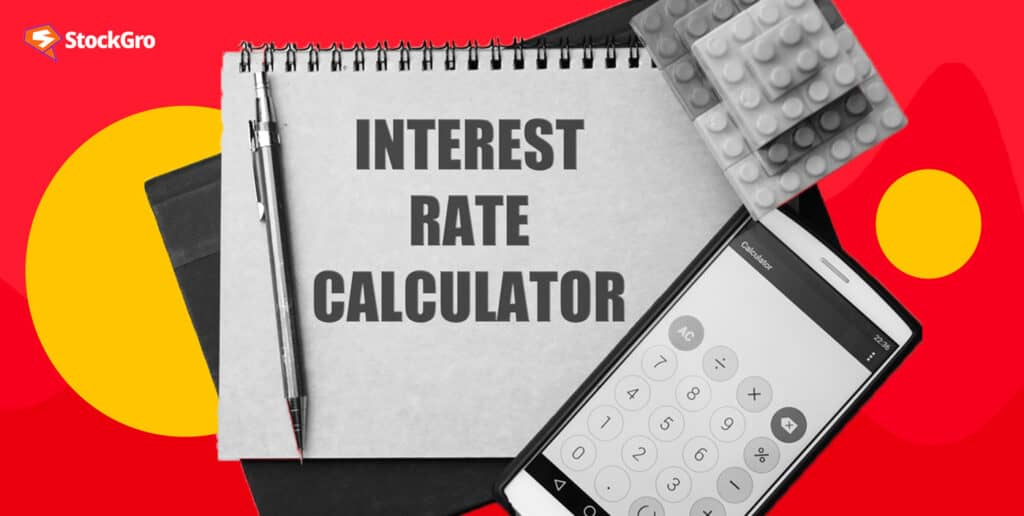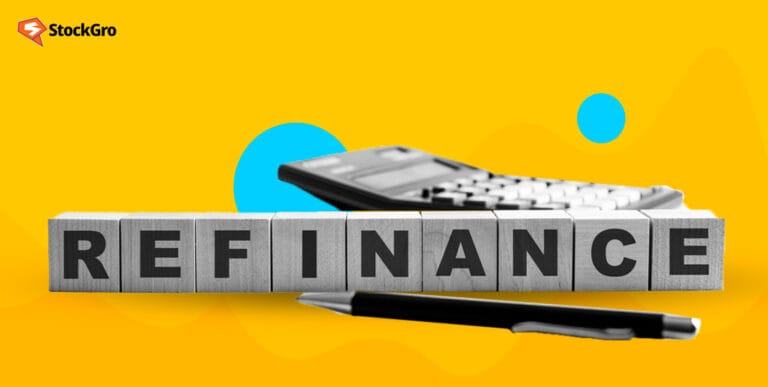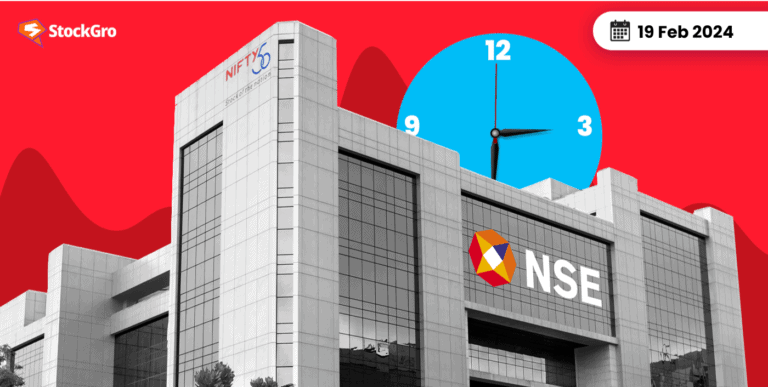
If you’re considering borrowing money for various needs like consolidating debt, home improvements, or unexpected expenses, understanding personal loan interest rates is crucial. Using a personal loan EMI calculator can help you estimate monthly payments, making it easier to compare options. So, let’s explore everything you need to know about interest rates on personal loans.
Understanding personal loan interest rate
It is the total amount of money that an individual has to pay back, including the principal amount. When you make out a personal loan, you have to repay the loan amount you borrowed back during a specific period of time periodically on a monthly basis. These payments consist of both the principal and the interest that the lender or the financial institution charges from the borrower.
Personal loan rate of interest which an individual will get is dependent on various factors like, credit score, income and history of employment, among other factors. Among varied factors, credit score plays an important role. This means if the credit score of the individual is high they will get a low rate of interest.
You may also like: Simplify your financial life with debt consolidation: A complete guide
How do interest rates on personal loans work?
When you apply for a personal loan, the interest rate you’re offered depends on factors like your credit score, loan amount, and term. Generally, a higher credit score means a personal loan on minimum interest rate because it shows lenders you’re less risky to lend to. There are two types of interest rates: fixed and variable. With a fixed rate, your interest stays the same for the whole loan term, while a variable rate can change based on market conditions.
It’s crucial to know which type you have since it affects how much you’ll pay back overall. So, before getting a personal loan, make sure you’re clear on the interest rate type and how it can impact your borrowing costs. Also, you can use the formula to calculate rate of interest on personal loan.
Types of personal loan interest rate
- Fixed Interest Rate
A fixed interest rate is one that remains consistent throughout the duration of the loan. This means that your monthly payments stay the same, providing stability and predictability. This stability makes budgeting easier since you know exactly how much you need to pay each month.
However, it’s essential to note that fixed rates may be higher initially compared to variable rates. Despite this, many people prefer fixed rates for the peace of mind they offer.
- Variable Interest Rate
On the other hand, a variable interest rate fluctuates based on market conditions. This means that your monthly payments can go up or down depending on changes in interest rates. The benefit of a variable rate is that it can result in lower payments if interest rates decrease.
However, there’s also the risk that your payments could increase if interest rates rise, leading to uncertainty about future expenses.
- Introductory Rate
An introductory rate is a special, often lower, interest rate offered for a limited time at the beginning of the loan. This can be an attractive option since it means you’ll have lower payments initially, potentially saving money in the short term. However, it’s important to read the fine print because the rate typically increases after the introductory period.
This increase can impact long-term affordability, so it’s essential to consider the initial savings are worth it for a long time.
Also Read: The hidden costs of freedom: Foreclosure charges on personal loans
What are the factors that affect personal loan interest rates?
- Credit Score
Credit score plays a significant role in determining the interest rate you’ll be offered. A credit score is a report card that shows how responsible you’ve been with borrowing and repaying loans.
Generally, the higher your credit score, the lower the interest rate you’ll qualify for. Lenders see borrowers with higher credit scores as less risky because they’re more likely to pay back their loans on time. This lower perceived risk means they’re willing to offer lower interest rates to these borrowers.
Maintaining a good credit score is crucial if you want to save money on interest payments. By paying bills timely, keeping the credit card balances low, and avoiding opening many new accounts can improve your credit score. Even small improvements in your credit score can lead to significant savings on interest payments over time.
- Income and Debt-to-Income Ratio
In addition to your credit score, lenders also consider your income and debt-to-income ratio when determining your interest rate. Your income shows lenders how much money you have coming in each month, while your debt-to-income ratio compares your monthly debt payments to your monthly income. Lenders use this information to assess your ability to repay the loan.
Borrowers with higher incomes and lower debt ratios are seen as less risky by lenders, so they offer lower rates. If you have a steady job with a good income and relatively low monthly debt payments, you’re more likely to qualify for a lower gst rate on personal loan interest.
- Loan Amount and Term
The amount of money you borrow, and how long you want to borrow it can also impact the interest rate you’ll be offered. Generally, larger loan amounts or longer loan terms come with higher interest rates. This is because lenders see larger loans and longer terms as riskier investments. With a larger loan amount or longer term, there’s a greater chance that something could happen to prevent you from repaying the loan as agreed.
How to reduce interest rate on personal loan?
- Improve Your Credit Score
Improving your credit score is key to getting a better interest rate on your personal loan. Here are some practical tips:
- Make Timely Payments: Pay your bills on time to show lenders that you’re responsible for your finances.
- Reduce Outstanding Debt: Try to pay down any existing debt, like credit card balances, to lower your overall debt load.
- Monitor Credit Reports for Inaccuracies: Regularly check your credit reports for errors and dispute any inaccuracies you find.
A higher credit score can open doors to better loan terms, including lower interest rates.
- Shop Around
Don’t settle for the first loan offer you receive. Here’s why shopping around is important:
- Obtain Quotes from Multiple Lenders: Get quotes from several lenders to compare interest rates and loan terms.
- Increase the Likelihood of Finding a Competitive Offer: By exploring different options, you increase your chances of finding the most favorable terms for your situation.
- Consider Co-Signing or Securing the Loan
Having a co-signer with good credit or offering collateral can help you secure a lower interest rate. Here’s why this strategy is beneficial:
- Co-signers Mitigate Risk for Lenders: Lenders may offer lower rates when a co-signer with strong credit is involved, as it reduces the risk of default.
- Collateral Provides Security: Offering collateral, such as a car or savings account, can reassure lenders and lead to lower interest rates for borrowers.
Also Read: Unsecured loans: How does it impact the borrower?
The Bottom Line
Understanding interest rates on personal loans is crucial when looking for financing options. They directly impact the total cost of borrowing and your monthly payments. So it is essential to shop around and find the best rates and terms that suit your financial situation.

